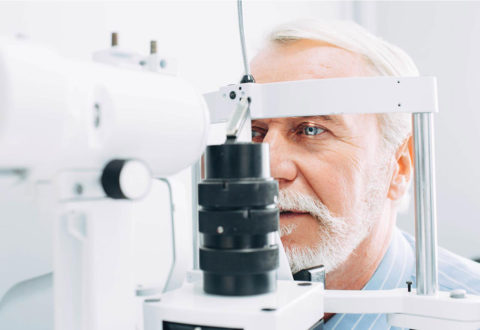Multifocal lenses are implanted through a small incision at the edge of the cornea (minimally invasive) and allow you to see clearly in the distance and close up. These lenses have several focal points, which means that in the ideal case, all everyday activities after refractive lens replacement can be performed without glasses, as several spectra are covered. It should be discussed at what distance (reading, screen, sports, household) a glasses-free vision is aimed at and which activities are pursued in the first place. Accordingly, it should be decided whether a multifocal lens is sufficient or whether a trifocal lens should also be used (see trifocal lens).
The UV filter prevents damage to the eye and provides additional protection for the retina against harmful influences. Above all, however, it also seems to achieve an improved sense of contrast in some situations (e.g., driving a car).
Which Patients Choose This Lens?

- Patients who see well at medium distance
- Patients with astigmatism
Advantages
- For many patients, eyeglass-free vision can be made possible
Disadvantages
- The multifocal lenses only cover two distances: Distance and proximity.
- These types of lenses are not recommended for professional drivers.
- Possible optical changes in headlights and at night
Properties of the Lenses to be Used
The lenses to be used must first have the CE (European Standards Certificate). These should have been used frequently and obtained good results. In addition, a special injector should be inserted into the eye through the 2 mm incision. (If the lens forms its own shape in the eye, the width should be 13 mm and the length 6mm.)

Surgical Technique and Anesthesia
Lens implantation is an entirely painless operation. Anesthesia is performed using special eye drops. This type of anesthesia is also known as topical anesthesia. After the drops, the phacoemulsification method (phaco – folklore laser – method) is applied.
Duration of Surgery
Approx. 10 min. It can be shorter or longer, depending on the patient.
Is There Pain During and After the Operation?
The procedure is completely painless as the treatment is performed under anesthesia. Even after the operation, you will not feel any pain.
What is the Postoperative Process and How Quickly can You Resume Your Normal Daily Routine?
The treated eye of the patient is kept closed for one night. From the next day, 2 drops are administered 4 times a day, but the patient can immediately resume his regular daily routine, including bathing. The eye that was operated on after the other eye surgery can see well. Once both lenses have been implanted, the adjustment to the lens also becomes much more comfortable.




